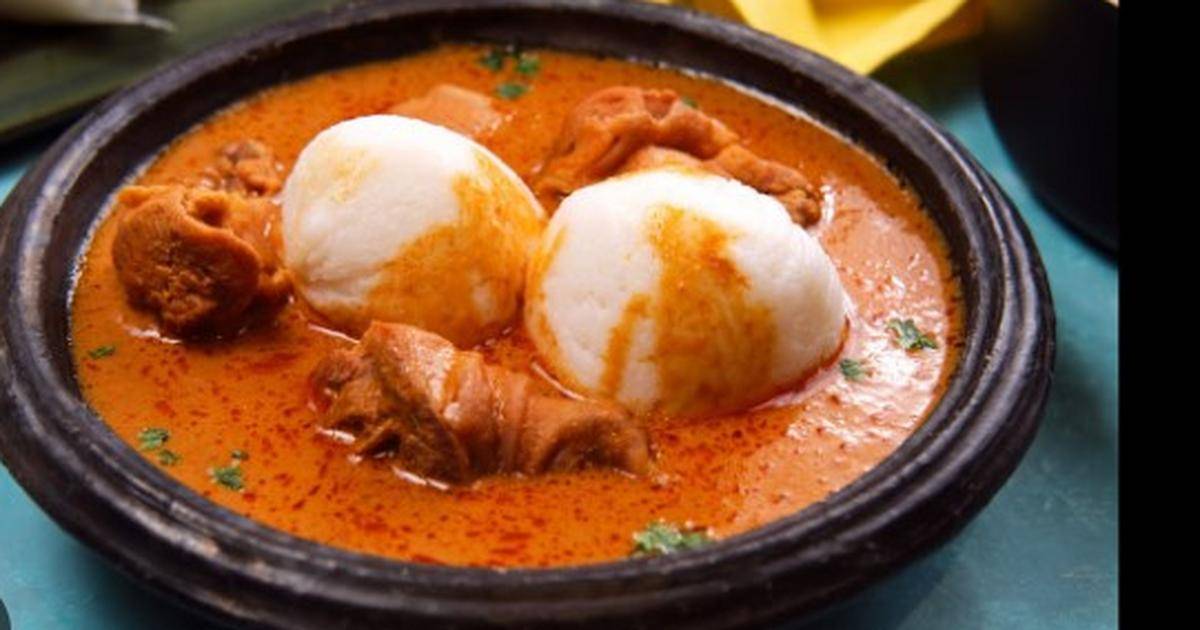Banku, a cherished staple in Ghanaian cuisine, is a versatile dish made from fermented corn and cassava dough. Loved for its tangy flavor and smooth texture, it holds a unique place in the hearts of Ghanaians and has garnered popularity in neighboring West African regions as well. Often served with various accompaniments like okra soup, grilled tilapia, and pepper sauce, banku provides an array of nutritional benefits and represents a connection to tradition and culture.
1. Nutritional Benefits of Banku
Banku is highly nutritious due to its primary ingredients, corn, and cassava, which offer complex carbohydrates, dietary fiber, vitamins, and minerals.
Carbohydrates for Energy: The high carbohydrate content makes banku an excellent source of energy, especially beneficial for those with physically demanding lifestyles. These complex carbs release energy slowly, helping sustain stamina over extended periods.
Fiber for Digestion: The fermentation process enhances the dietary fiber content, promoting healthy digestion and reducing constipation. Fiber-rich foods like banku help maintain a balanced gut microbiome and reduce risks associated with colon issues.
Vitamins and Minerals: Banku is rich in B vitamins, including niacin, thiamine, and riboflavin, which support brain health, metabolism, and overall energy production. It also contains essential minerals like potassium, magnesium, and iron, which help with heart health, muscle function, and oxygen transport in the body.
2. Supports Digestive Health Through Fermentation
The fermentation process used to make banku not only adds to its distinctive taste but also brings unique health benefits. Fermented foods contain beneficial bacteria, or probiotics, which help balance the gut flora and improve digestion. Probiotics in fermented foods have also been shown to boost immunity, reduce inflammation, and improve mood by supporting the gut-brain axis.
3. Culturally Rich and Economically Sustainable
Banku is more than just a meal; it holds cultural significance in Ghana and connects communities through shared meals and traditional cooking methods. The making and eating of banku foster a sense of cultural identity and pride, passed down through generations. It encourages the use of local ingredients, making it economically sustainable and supporting Ghanaian farmers and small-scale producers.
4. Versatile Pairing Options for Added Nutritional Value
Banku’s versatility as a base dish means it can be paired with various protein-rich sides like grilled tilapia, crab stew, or chicken, which provide the essential amino acids the body needs. Pairing banku with vegetables like okra or spinach stew enriches the meal with antioxidants, vitamins, and minerals, further enhancing the nutritional profile of the dish. The balanced combination of carbs, proteins, and vegetables in a typical banku meal provides a wholesome, balanced diet in one sitting.
5. Affordable and Accessible
As a staple dish, banku is affordable and accessible to people across different socioeconomic backgrounds in Ghana. The ingredients—corn and cassava—are widely available and can be grown locally, making banku a budget-friendly option. For many Ghanaians, this accessibility ensures food security and consistent nutritional intake.
6. Promotes Satiety and Weight Management
The high fiber and carbohydrate content in banku helps promote satiety, reducing overeating and cravings. When consumed in balanced portions, banku can support healthy weight management, providing sustained energy and keeping hunger at bay for longer. This quality makes it an ideal meal for people looking to manage their weight or engage in physically demanding tasks.
Conclusion
Eating banku offers more than just a satisfying meal; it provides a wholesome blend of nutrients, a connection to cultural roots, and support for local economies. The fermentation process boosts its digestive benefits, while its pairing versatility enables a balanced intake of proteins, vitamins, and minerals. Accessible and affordable, banku stands as a testament to the nutritional richness and cultural heritage of Ghanaian cuisine. So, whether you’re a local or trying it for the first time, banku is a dish that truly embodies the heart of Ghana, one delicious bite at a time.



No comments yet
Be the first to share your thoughts!